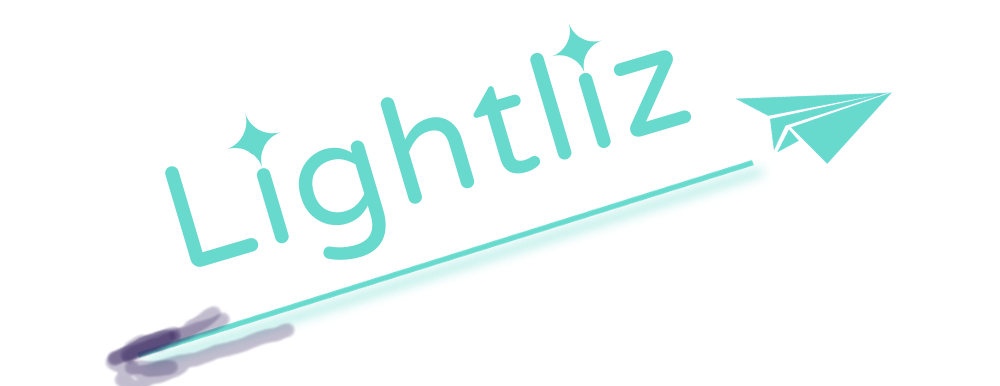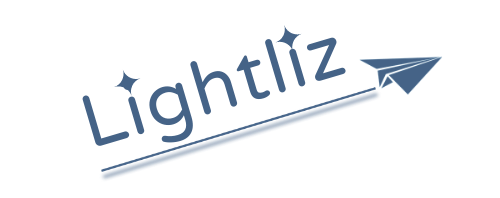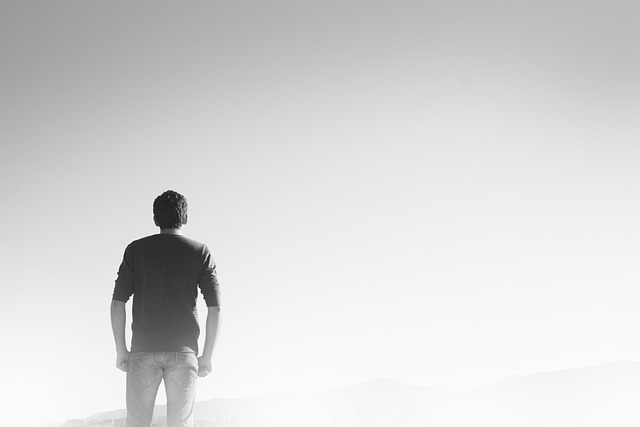If you are here, you’ve probably heard these two words somewhere: existential crisis. That period in life when everything collapses, and we feel lost, depressed, and evaluating who we are and why we are in this world.
But what does an existential crisis feel like, how does it start, what are the signs of such a crisis, and how can it be overcome?
Based on my prolonged existential crisis, you’ll find my answers to these questions in this article. After many hesitations to share such personal, challenging experiences, I decided to be vulnerable and go for it.
I’ve exposed these experiences to give a genuine outlook on how a real existential crisis feels, warn others of my mistakes, and inspire them that it is possible to make it through.
Here is my brief overview on how to overcome an existential crisis:
The first crucial step is recognizing that you are in an existential crisis by following the root cause of the symptoms. Then, it’s all about consistent self-exploration while being gentle with yourself and getting support. When feeling ready, it’s time to realize your growth plan and take courses to obtain new skills.
Read on to reveal my existential crisis definitive recovery scheme and how I ultimately reinvented myself as a content creator. I provided as many examples and anecdotes as possible to help you better understand the condition and how to overcome it.
Before we dive in, let’s clarify what existential crisis stands for.
Disclaimer : The information provided in this article is for educational purposes only, and it is not a substitue for professional advice. The article may contain affiliate links. See the full disclaimer for more details.
What is an existential crisis?
An existential crisis is when a person feels lost, confused, and uncertain about the meaning of life. A significant life change, such as a job loss, a business failure or a death in the family, or a health diagnosis, can trigger it. Existential crises can also be caused by overworking or prolonged stress or anxiety, as you’ll soon see in my story.
While it’s common to ask about your purpose, during an existential crisis, it’s the inability to get satisfying answers to that question. It’s the overwhelming experience of knowing yourself. That often leads to internal conflict resulting in resentment and agony. 1
The existential crisis has a negative association but is also a positive thing. It’s a radical way for our mind and body to guide us to change our career path, lifestyle, or overall purpose.
Now let’s see how it all started for me and what I felt at each stage of the crisis.
How does existential crisis feel
An existential crisis is one of the most horrible things one can face mentally. One day, all your confidence, passion, and competence are gone. That isn’t very pleasant, to say the least, and can also affect our physical health in extreme cases. That happened to me four years ago in the middle of my 30s, after working hard on my Ph.D. application in the U.K.
I failed to win a full scholarship for my post-graduate studies, and all my academic dreams disappeared.
It was not only the feeling of failure, as you might think, but also the new void in my life. I aspired to become an impactful scholar, and when that dream was gone, I was not motivated to wake up in the morning.
That felt bad. I was depressed and developed various pains and mind-body symptoms that dropped my productivity to almost zero.
Highly sensitive persons like me are more prone to existential crises, as we are more concerned about meaning and tend to struggle with changes. However, that can happen to anybody, anytime, no matter what.
How long does an existential crisis last?
Overall, my existential crisis lasted for almost four years. However, the worst part was the first year when the symptoms distracted me from rebuilding my sense of purpose. So, the first months were ultra debilitating, and since then, I have been gradually able to journal more about my passions and career opportunities.
The recovery usually takes time, especially if you leave your job due to the crisis. Staying at home, unemployed, for a prolonged time puts the mind in an overthinking mode, which is dangerous. Learn from my mistakes, and don’t quit your job to find your path.
These time frames aren’t necessarily relevant to you or anybody else. Some people cope with existential crises for several months and get back on track, but mine was a prolonged crisis, which is also common.
Existential crisis triggers
An existential crisis is often caused by some big event that changes life altogether. That event forces us to explore life and ourselves again from scratch.
In many other cases, the crisis results from repressed questions about our purpose that come out to our conscious due to multiple shocking events. That was my scenario. The accumulated tension and anxiety from the following events made my body collapse and rethink my existence:
Physical trauma
The most apparent trigger that can light up everything is physical trauma. In my case, it wasn’t even something objectively serious like a car accident or head injury. None of that. It was only a standard blood donation.
A service crew came to our workplace and asked who agreed to donate blood. I naively said yes. I thought, why not? It’s just a blood donation. I donated blood a couple of years ago and felt good afterward, so why not help others again?
Well, when life gets intese, you must take care of yourself. I wasn’t aware enough of my overall well-being back then, so I donated blood naively.
Donating blood this time was a horrible decision considering my stressful life. While most people feel weak after donating blood for an hour, maybe a day max, I got stuck in the fatigue for four years straight. Very similar to post covid fatigue which became known since the Covid pandemic.
I did tons of medical tests, and all came back clear. It took me a while to figure out that the lack of direction significantly affected the fatigue.
Unfortunately, any physical trauma, from even blood donation to significant trauma like a car accident, can shake our souls and lead to a crisis, especially if we had a highly stressed life before the trauma. So, take care of yourself if your life is stressful now. Don’t overburden the body on these circumstances.
Work environmental misfit
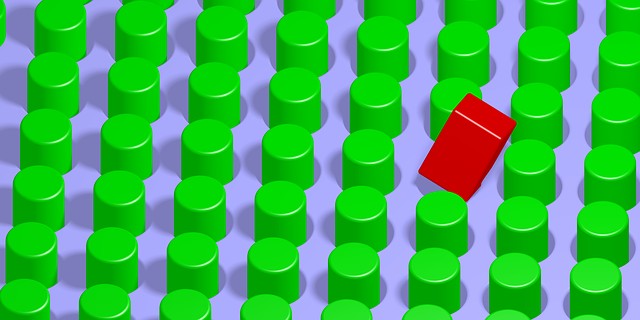
This factor was more hidden than blood donation. I’ve attributed the work environmental misfit to my crisis only in hindsight.
Three months before the blood donation, I started to work as a customer service agent at an investment house. The people were great, the job was fine, but I didn’t find any meaning.
It was bureaucratic office work that misfitted my professional ambitions. I like to create original stuff that helps others. I also want to educate, which happened only occasionally when I helped new workers in my team.
However, the biggest issue I got there was the work environment.
The physical work environment consisted of 70 people in one open space. That was too much for me as an introverted person. I like to work along with other coworkers in the same room but not more than three or four max.
This environmental misfit caused me to feel dizzy when I came in every day. It made me anxious and less comfortable to focus and reach the goals given to me at work.
Failure
Failing to reach an important goal in life can be devastating. Feeling like a failure can lead to feelings of worthlessness and despair and the path which got closed leaves us with sudden emptiness.
I could have tolerated the environmental misfit unless my academic aspirations collapsed in the summer of 2018. I was notified by email that I hadn’t been chosen for the prestigious full scholarships at Sheffield and Edinburgh Universities, where I won my place to study for a Ph.D. in sociology.
Unfortunately, although two scholars at these universities have shown interest in my research proposal, I couldn’t pay the high tuition fees without the scholarship.
When I failed my Ph.D. scholarship application, I felt ashamed and embarrassed and started questioning my abilities. All my self-esteem relied on my academic progress, and when the doors to this lane were closed, I lost all my confidence.
Failing two years in a row to receive a scholarship was too much for me. My body was exhausted from the after-work time spent on the research proposal, application documents, and one blood donation that depleted my energies completely.
Other dramatic life events
Existential crises can start from the opposite of failure, like winning first place in your country at chess, getting promoted to your dream job, hitting one million subscribers on your YouTube channel, or you name it.
That hadn’t happened to me, but there are numerous stories of those who reached their ambitious professional goals and suddenly lost meaning in life. Existential crises can be caused by other transformative life events too like getting married, having the first child, or losing a loved one.
The common mechanism in all events is the sudden shift from steady life to a new, unknown one. That can happen because of either good or bad life events.
Common signs of existential crisis
Each person will face different symptoms because of an existential crisis. Nonetheless, here are common signs of the condition, emphasizing those I experienced. If you go through any of these symptoms, ot others, seeking help from professionals is essential.
Meaninglessness
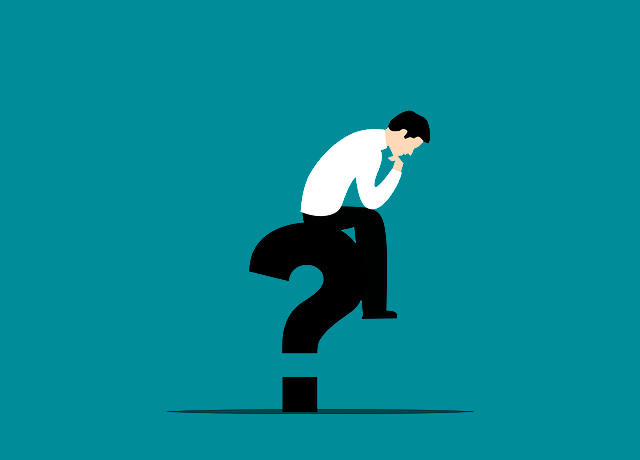
This is the core symptom of existential crisis. It feels like life has no purpose or value anymore. I managed that feeling as an employee long before the collapse, yet at least my academic aspirations gave me some meaning. When these fell off, the empty feeling took over me.
Feeling meaningless opens many existential concerns, like why I’m here, why we are here as a society, and what humankind’s role is.
The existential questions wouldn’t be that excruciating if I had meaning in daily life. Since I lost my ambitions, I lost my drive and remained floating in the world without knowing what was happening.
So, not surprisingly, the solution is regaining that inner sense of purpose. But how the heck should I do that? I wondered. I couldn’t even start exploring since my anxiety took over.
Anxiety
When I lost my direction in life, I lost control. This is the bread and butter for the anxiety monster.
Anxiety can manifest in many forms, from sudden to chronic physical pain or weakness, dizziness, shortness of breath, jelly legs, and other scary symptoms. The underlying emotional feeling of anxiety is often associated with being restless, worried, or tense. 2
So many things can cause anxiety, and an existential crisis is one of them.
When I was notified that I hadn’t reached the scholarship I was expecting, I faced the toughest ripple of anxiety in my life. I had anxiety a few times before, but nothing compared to that burst.
When my crisis began, I became super dizzy and could not even walk in the street without feeling I would faint. That was horrible, and it lasted for several weeks. Luckily, I had a good friend that supported me during that time.
Everyone will experience anxiety differently, at different levels, but most sufferers I talked to agree that it’s a horrible experience. Losing meaning and direction reduces self-esteem, where anxiety usually snicks in.
Depression
Depression can be a stand-alone condition or a symptom of an existential crisis. While in a crisis, it’s hard to tell whether it’s a depression or a depressive state caused by losing meaning in life. 1
Unlike anxiety, I hadn’t had depression before my crisis, so this was something new. And Lord, that was the worst symptom ever. More than any other symptoms on this list.
Essentially, I felt sad, hopeless, and dull for many months after the outbreak of my crisis. The pain gradually subsided when I rebuilt my content creator career and regained my passion and meaning in life.
That wasn’t easy, though, and I haven’t got rid of these feelings entirely. But they have improved as I saw progress in my new professional journey.
Apathy
It took time to become active with my decisions and put things together. For the first few months, I was stagnant, did nothing all day, and was depressed with my life.
I became indifferent to things I used to enjoy, like riding the bicycle, playing chess, meeting friends, and so on. Why bother? I wondered if there was no point in what I did anyway.
Loneliness
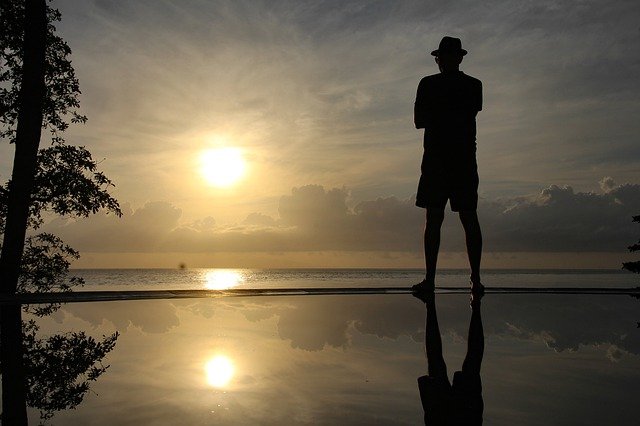
When I entered the crisis, I was alone with my symptoms and lack of direction. I was there alone except for a few friends, my parents, and my therapist, who supported me with my existential crisis.
With time, I became more alone with my thoughts on the future, about dealing with the various debilitating symptoms and the general depressive state as a 34 years old dude who was broke, ill, and out of direction.
Even when talking to my friends about my problems, I felt alone. None of them know what I am going through and what I should do with my life now. I became isolated and disconnected emotionally from my friends, who moved on with their careers and started to raise a family.
Addictions
Some get to alcohol or other unhealthy substances to distract them from the emptiness and feeling of loss. 3 Luckily, I haven’t felt into alcohol or drugs but have become addicted to chess. What was my favorite hobby for years has become an addiction. Due to the high-paced styles of the games, and the fact that ratings were involved, chess has become a double edge for me. I couldn’t stop playing online and felt even worse as a result.
Addiction can be to the more hard-core stuff like gambling, drugs, or alcohol, but also fun activities like chess or even scrolling social media feeds. All these addictive activities can be part of the existential crisis. It’s an unhealthy way to fill our new hollow state with something exciting.
Chronic fatigue
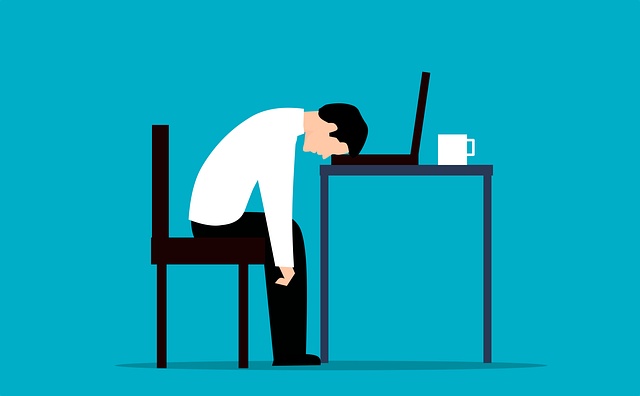
Fatigue was the most prominent symptom of my existential crisis. It might not be the case for you, but it was for me. In hindsight, I know that the fatigue became chronic as part of my staying with no direction in life, while the blood donation was only the physical trigger.
Feeling fatigued is not exactly like being tired. It’s like all your muscles are weak, and it’s when you want to rest and sleep, but your sleep sucks. I barely slept well, which deteriorated all my other symptoms and my muscle weakness. I wasn’t able to do too much in a day and couldn’t exercise either, or if I did my condition worsen.
However, chronic fatigue syndrome manifests more than tiredness, muscle weakness, and insufficient sleep. It was also about memory issues, I had a blackout of remembering words, and it was more complicated than ever to concentrate on a task. 4
I wouldn’t recommend that condition to anybody. Fortunately, today I’m better thanks to mind-body awareness, and my reinvention progress.
Chronic pain
Well, chronic pain was a big deal for me, only second to fatigue. The crisis caused me various pains in my body – shoulder pain, back pain, and heartburn, all of which gradually developed and ruined my life. At some point, it became so bad that I couldn’t even try to plan and rebuild my career. I couldn’t focus.
The pain was triggered when the crisis first hit me. That led me to many medical tests and dread that something was wrong with my health. This is where my hypochondria kicked in, perpetuating my pains even more.
However, as all tests became apparent and the doctors who checked me didn’t know what I had.
I realized I had a mind-body pain only after a mindset transition that’ll soon be depicted. In a nutshell, I found that my pains outburst resulted from my repressed emotions and the professional tension I had before the crisis. It took me over a year to sort that out and stop being afraid of a severe neurological illness.
It’s important to remember that each person experiences different sets of existential crisis symptoms. For me, fatigue and chronic pain were the most debilitating ones. It’s not only the struggle with the pain and fatigue themselves but also how life gets more and more limited by them.
How I overcame my existential crisis
My recovery from the crisis was not linear. I had ups and downs along the way, and I still cope with occasional relapses in the symptoms. Nonetheless, I feel much better today since I reinvented myself as a creator, got a sense of purpose, and redeemed my confidence.
This is how I made it through:
1. Focusing on the root cause instead of the symptoms
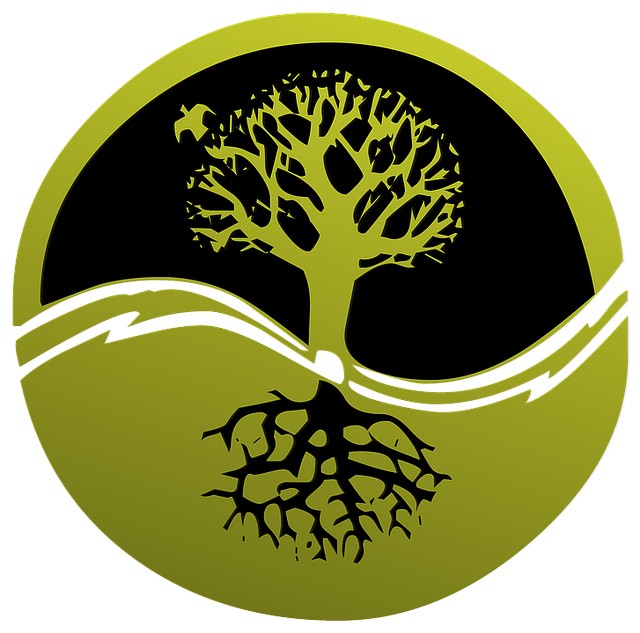
The first step to overcoming any crisis is to stop worrying about the symptoms and try to solve the underlying cause of the crisis – a lack of purpose and direction.
While finding meaning and working again might sound obvious to you now, you’ll be surprised how difficult it is to reach that understadning during the first phase of a crisis. While ruminating about your pains and suffering and feeling lost, it feels impossible to rebuild your career path or even think about it.
All I was concerned about when it started was the pains, low mood, or other symptoms that bothered me.
When I failed my scholarship application in the U.K., and those symptoms hit me hard, my hypochondria went through the roof. I was sure I had a terminal neurological illness, rheumatic inflammation, or cancer. All the medical tests and doctor visits scared me of death. The last thing I was concerned about was reinventing myself. Even after all tests came back clear, I was still obsessed with my symptoms.
I was also worried about whether that will end and how I will function like that in the future. Fortunately, I discovered “The Mindbody Prescription” book by Dr. Jhon Sarno (Amazon) and watched YouTube videos of coaches who elaborated on his approach to healing mindbody symptoms and pain.
For some, reading the book is all they need to heal their symptoms. However, for many others like me, we needed to refill ourselves with meaning to fully recover. One of my favorite tools for that is journaling.
2. Journaling

I found journaling as a highly effective self-discovery tool. It helped me tremendously in several ways. First, it helped me connect the dots between my symptoms and my repressed emotions. That includes releasing those emotions using free writing or the spider technique 5.
Second, when I understood my mind-body connection, I started writing down my thoughts regarding my passions and opportunities. What do I love doing regardless of the symptoms? What are my strengths? Do I want to return to being an employee or building my brand?
These questions arose as I continued exploring myself. They helped me so much. When you are just in your head thinking, you can’t reach the insights you get through writing. Writing lets you refine your idea and separate the wheat from the chaff.
In summary, journaling helped me release the tension from my body and understand my mind-body connection. In the next step, when my mind freed up from the fears, I could explore what I wanted to do and how I should realize that.
Nonetheless, more was needed to see the desired breakthrough.
3. Consulting with a therapist
Regardless of how effective journaling was for me, it wasn’t enough. Therefore, I got ongoing support from my therapist during the four years of my crisis. I shared my symptoms and pains with her and what they represented in my emotional world. She helped me deepen those problematic emotions and release them.
At the same time, her presence supported my self-discovery regarding what I wanted to be and how to implement my ideas. She mostly listened to me making sense of my life; sometimes, it’s all we need to feel better and see progress. I can confidently tell I couldn’t have reached this progress alone.
4. Connecting with nature

Nature is where I can relax, be more present, and appreciate my life. We are so small compared to the big mountains and trees out there. That view gives you a proportion in life. The quiet, the birds, and the breeze is what I need when I get overwhelmed with my thoughts at home.
But you don’t need to go for a long hike to benefit from nature. Research has shown that even five minutes walk a day can help improve our well-being 6. So, don’t underestimate the park around you or the field next to your town.
Spending time in nature can help at least take a break from existential thoughts and live and connect with the right now.
That’s crucial for various mental health conditions, including existential crises.
5. Learning online and taking courses to obtain new skills
Taking action to fulfill yourself is the most challenging yet significant step toward recovery. I acted after outlining my new aspirations and wrote down several professional routes I’m interested in. It wasn’t easy as I still felt not tremendous and almost forgot what being active looks like.
Fortunately, with the support of my mother and friends, I went for it. I took a frontal writing course in my place and an online SEO course to learn how to write online.
Participating in the marketing courses was uplifting not only because of the new skills I gained but also because I mingled with new people. Meeting business owners and potential creators in the frontal course inspired me and reinforced my idea to become a creator.
6. Realizing the new path

After completing these courses and learning so much more via YouTube, I started writing for an organizational consultant in my area. I learned a lot through the year we worked together. I ran Facebook campaigns, did the copywriting, managed the posts, and wrote pages and articles for his website.
However, very soon, I realized I needed something for myself. To blog on my site with my ideas and earn money without depending on one client’s whims.
This is where I pivoted to be a content creator. As I was still broke, my family supported me financially. I’m not proud of that, but when you need to survive, you let go of the pride.
As much as the new energies fueled me since I took the courses and engaged with my latest endeavor, it wasn’t smooth. My first creator attempt was pretty bad. I started a gadgets Facebook page and Instagram page with a poor business model without niching down my brand to attract an audience.
Then I came up with a hyper-niched blog on retro keyboards, where I succeeded in gaining hundreds of dollars from Amazon, which was encouraging but still not it. While quickly reaching the ceiling in that micro niche, I learned much about keyword research and blogging.
It took time to refine and see what works best for me and brings my strength and interest to the blog. Finally, I figured out my niche and started this self-discovery blog.
I had many doubts about blogging on my journey, as I needed to expose my personal experiences to the readers. But it was stronger than me. It ticked in one time I journaled my ideas. It became clear that I needed to genuinely share my struggle with finding a purpose to help others learn from my lessons and grow.
That was the most valuable thing I can serve, and as such it felt meaningful.
When I gradually developed this blog and saw some success, my confidence rose, and I cared less about the mind-body symptoms. This is when some of them heal while others are getting better and better.
So, whatever your new aspiration on your self-discovery journey, believe in yourself and realize them! Don’t let the symptoms distract you from the reason existential crisis start in the first place – a prolonged repressed confrontation with our true purpose.
The takeaway from my existential crisis
I wouldn’t recommend going through an existential crisis. That was an awful experience in my life. When I got into that crisis four years ago, I didn’t know how difficult it would be to get back on track.
Please do whatever you can to have a meaningful, balanced life, so any crisis that comes, you’ll be more resourceful to deal with it – at least more than I was.
Nonetheless, I’ve got you covered if you experience such a crisis. In this article, I shared the lessons I learned during my crisis – how I learned to pay less attention to the horrific symptoms I got and what steps I’ve undertaken to rebuild my life.
If you find yourself in an existential crisis, turn it into growth. I know it’s not easy, but if you think about it, that is what existential crisis is all about. It’s how your body signals that you better do something else to become happier and fulfilled.
If you are experiencing an existential crisis, remember you are not alone. Many people experience these crises at some point in their lives. The first thing you should do is consult with friends and professionals, a therapist and a doctor, to help you navigate the crisis.
Then, enduring self-exploration and relaxation techniques are needed to put you back on track and reinvent yourself. Believe it’s possible and use professional support to grow and gradually regain your sense of purpose.
I hope my story gave you some ideas and inspiration on coping with existential crisis.
To your growth, and self-fulifilment
Shachar
Shachar is a blogger and sensitive person who worked in a recruitment company and holds a master’s degree in sociology. After years of struggles to find purpose, he made this blog to help others find their purpose more efficiently. He likes to play chess, walk in nature, and take photos in his free time.
- What Is an Existential Crisis, and How Do I Break Through It?[↩][↩]
- Anxiety[↩]
- Siu-ming To , Steven Sek-yum Ngai , Ngan-pun Ngai & Chau-kiu Cheung. 2007. Young people’s existential concerns and club drug abuse, International Journal of Adolescence and Youth, 13:4, 327-341.[↩]
- CFS (Chronic Fatigue Syndrome[↩]
- How do I journal?[↩]
- A walk a day keeps the doctor at bay[↩]
